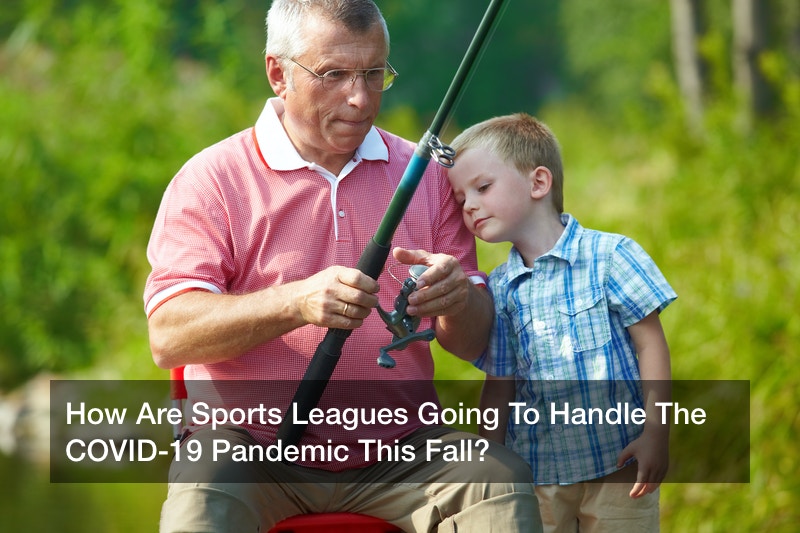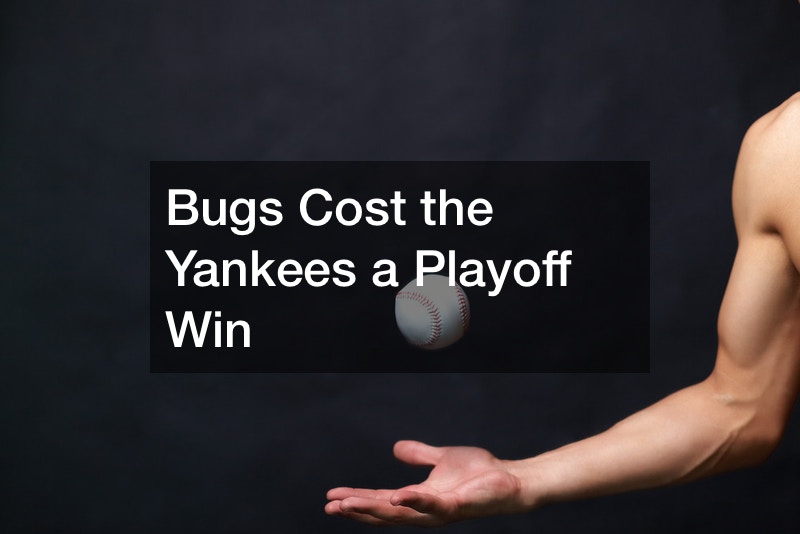
There are a number of ways in which the COVID-19 pandemic has affected everyday life. A lot of people are currently out of work, either permanently or due to work-instituted furloughs. Many, of course, are still self-isolating; and those with compromised immune systems are isolating even more strictly, to the point that they rarely leave their homes. Obviously, this has caused major health and economic crises, which are understandably first and foremost on everyone’s minds. However, the pandemic has also changed the way in which we experience life in general. Many people are dealing with mental health issues due to the fact that they simply can’t occupy themselves as they once did, and are separated from family and friends. Furthermore, the common ways in which we all once distracted ourselves are no longer available. Movie theaters are largely closed or operating at a limited capacity. Even those that have reopened cannot offer a lot of options, due to the fact that major studios have delayed the releases or big blockbusters and even released some on-demand in response to the virus. Perhaps one of the most jarring closures is that of many major sports leagues. In fact, the NBA, NHL, and MLB have all suspended their seasons due to COVID-19. Many cited the suspension of the NBA season as one of the first major signs that the pandemic was a serious issue on a personal level. To put it in perspective, even as people remained personally unaffected by the virus at first, a lot of them realized that it was serious once they understood that they would no longer be able to enjoy sports as they usually did. But as the pandemic has progressed, many may wonder about the upcoming sports seasons and what is happening now.

It’s important to remember when considering any upcoming sports seasons that COVID-19 is a constantly-evolving crisis. Whereas some regions may have been largely unaffected at the beginning of the pandemic, new spikes have been occurring across the country, making it difficult to predict what will happen next. While some leagues may be planning on a full season in the near future, they may have to change their plans as time goes on and the situation develops. For that matter, even leagues that resume likely won’t be able to do so at the same level that they once did. Changes must be made, and sports must evolve in response to the crisis. But as they evolve, this doesn’t mean giving up on sports entirely; it seemly means accepting some changes. Let’s look into what is happening with regards to sports during the COVID-19 pandemic.
High School Sports

Let’s look at high school sports first. High school sports are under a unique set of circumstances because they largely concern athletes that are minors. Therefore, while college athletes and professional athletes will largely be making decisions for themselves as adults, and thus can choose to risk their health or livelihoods if they wish, high school athletes must be more safeguarded. The deciding factors include not only what they want and need, but what their parents are concerned about as well. However, there is also a lot at stake for high school athletes that don’t get to play within the upcoming sports seasons; much more than many might initially realize. High schools bring in a lot of revenue through sporting events and rely upon those funds to channel money into not only the furthering of the sports themselves but to other, more academic aspects of the school. High school athletes also rely upon these events to help set themselves apart. Many high school athletes gain scholarships to colleges through their athletic achievements, and would not be able to pay for college without them.
A lot of people are simply passionate about high school sports, especially football, basketball, and baseball. Parents who planned on their children playing through high school and even college may struggle with the idea of upcoming sports seasons being canceled. Furthermore, a lot of schools may have to make budget cuts to accommodate the lack of income normally associated with these sports; though conversely, they also won’t have to channel money into keeping their sporting events afloat. However, this is a reality that we may have to face in the coming months. Even now, state lawmakers are calling to cancel the fall season of high school sports. Of course, this is receiving some degree of pushback, and understandably so. However, it’s important to remember that these decisions would be made with the safety of student-athletes principally in mind. Unfortunately, a lot of popular sports are high contact. This means that students would regularly be at risk of not only catching the virus themselves but then proceeding to spread it to their friends and families. Furthermore, a major reason why sports exist in the first place is to entertain spectators. While college and professional games are usually broadcast on television, making it easy for fans to follow them at one, it’s more difficult to do so on a large scale for high school games. This means that many people would end up attempting to watch high school games in person, thus creating a crowd effect and putting people even more at risk than they already were simply through the games existing.
Conversely, other states or regions, in general, are beginning to look into continuing upcoming sports seasons, albeit with specific guidelines in place. These guidelines may vary, just as the reopening guidelines on a larger scale have varied from state to state. However, just as there has been a resurgence of the pandemic within states with more lenient policies, so too might high schools experience negative effects if they implement more lenient guidelines. Some schools have proposed playing more distanced sports, like baseball and softball, in the fall. They would then move more contact-heavy sports into the spring, at which point hopefully the virus will be more under control, and treatments and vaccines will be ready. This will allow schools to still maintain their level of sports, while simply moving the upcoming sports seasons around. Other options would include perhaps condensing the sports seasons, as some schools will likely meet virtually, or through a hybrid learning program that will make it more difficult for athletes to come out to play anyway, as many of them are reliant upon bus travel. Of course, if sports do resume at all, there will be stronger rules regarding hand sanitizer and disinfecting equipment. Students will also be required to bring their own personal equipment like water bottles and keep them more clearly separated from other pieces of equipment. They will also have to wash their uniforms more frequently than they would have prior to the pandemic. Ultimately, it remains to be seen if these types of guidelines will be effective, or if parents will feel comfortable with them at all. Schools may very well not reopen at all in the fall, as many states are awaiting guidance from medical professionals on that front.
College Sports

Collegiate sports suffer from many of the same issues as high school sports. However, a lot of college students are even more concerned due to the fact that they already began school on athletic scholarships. If the upcoming sports season is canceled for these athletes, will they lose their scholarships and then owe tuition? At this point, a lot of universities don’t necessarily have the answers ready. Many, like high schools, are waiting on guidance from doctors before they begin making a final call about exactly what classes will take place in person in the fall if any at all. A major issue that is facing the college football season in particular, however, is time.
While the cancellation of spring practices was initially alarming, there was at that time a belief that athletes could continue to practice later, and that stakeholders would have time to wait and see what would happen. As the pandemic has progressed and become more serious, however, this issue has not resolved as some were hoping it would be, and the typical kickoff of the football season is rapidly approaching. Typically, summer workouts would begin very soon, which means that college teams need to make a call as to how they will proceed. Football obviously isn’t the only sport wherein a call needs to be made, but it is the one that is most quickly approaching, with the highest level of physical contact required between athletes. A lot of universities may very well adopt a similar approach to that taken on by high schools, in that they will possibly shift the seasons from fall to spring, and vice versa. Another major factor that may affect universities is that a lot of them will possibly have to cancel all overnight trips for liability reasons, which means that many major sporting events would become extremely difficult if not impossible.
As always, guidelines will affect how the upcoming sports seasons at universities will be affected. But a lot of universities are also being pushed to focus more on fighting the pandemic in their respective areas, with many of the major schools investing in lab equipment and research within their own medical programs. Some universities have even been called upon to stand by and offer empty dormitories as bedding for COVID-19 patients should the situation arise. Ultimately, things like new home office furniture for coaches and fresh uniforms for athletes isn’t going to be at the top of a budget during times like this. Universities are simply, like many other entities, being forced to pitch in where they normally wouldn’t be called to.
Professional Sports

As always, different types of leagues are going to deal with the pandemic in different ways, as they have separate factors to consider. The factor that concerns professional sports most particularly is of course professional. There is a lot of money in sponsorships, as well as of course athlete salaries to consider, that will affect how leagues wish to proceed. However, the fact is that many states may not let large gatherings like those centered around sporting events as they once did, and this will of course affect the sustainability of professional sports. As the upcoming sports seasons become more of an issue for them, with football as always being the sport that is approaching its crucial deciding point the fastest, another factor to consider of course is how much money will potentially be lost through the delay of the season, as well as the types of practical aspects that will change if the season is moved. If trainings are to resume, they may involve changes like players being tested at medical clinics on a regular basis, and of course more intense sanitation practices.
As the NBA and NHL had to shut down mid-season and them resume their postseasons in isolation, the NFL may very well have to do the same. The amount of ad revenue that could be lost through the postponement or cancellation of events like the Superbowl and March Madness cannot be dismissed outright, but athletes’ health and that of fans is of course the first priority and must remain so. Right now, leagues that normally would be conducting business in person have switched to virtual meetings, and major events like the NFL draft have been held virtually as well. But this will not be able to extend to the games themselves. However, it’s becoming increasingly clear that if the upcoming sports seasons are conducted as usual, we may very well see emergency rooms filling with COVID-19 patients.
While nobody wants to give up their favorite sports due to the pandemic, the reality is that just as we’re giving up getaways and a lot of other luxuries, we may have to give up the upcoming sports seasons, or at least the fall season. While rearranging the seasons may be an option, it’s not one without its own risks. As the crisis evolves, we shall stay tuned to see how the leagues address this issue.



